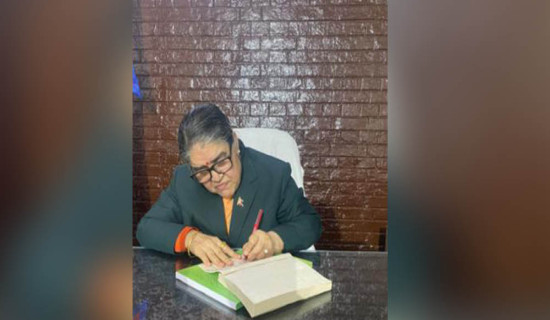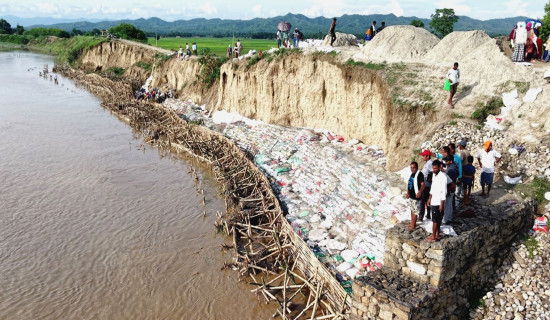- Wednesday, 16 July 2025
COVID Mars SEE Results
The COVID-19 pandemic has had its impact on every sector of human life. The global tentacles of the virus left no country untouched. The education sector was not free from the pervasive effects of this public health crisis. The impact is visible if we compare the results of academic examinations both at the school and college levels. The results of the Secondary Education Examinations (SEE) of the year 2078 BS have dropped in the percentage of students obtaining the highest GPA as compared to the previous years when the entire world was in the grip of COVID-19.
According to the SEE results published by the National Examination Board (NEB) on Wednesday, just 1.94 per cent students passed out SEE with 3.6 to 4.0 GPA as against 3.83 per cent in the academic session 2075 B.S. The NEB published the results after dividing the marks into eight categories. But only 42 students were able to secure 4.0 GPA. The number of students getting 3.2-3.6 per cent GPA stood at only 8.40 per cent as compared to 11.13 per cent in 2075 B.S.
However, the percentage of students averaging lower GPA has improved this time. The lingering pandemic had forced students to take only online classes for more than two years before appearing in the SEE. Out of 495,751 students who took the 10th grade final exams, only 9,633 graduated with GPA between 3.60 and 4. Similarly, 41,627 students secured 3.20-3.60 GPA while 69,900 managed to obtain GPA between 2.80 and 3.20. And 90,758 students graduated with 2.40-2.80 GPA. Likewise, 112,733 students secured GPA between 2.0 and 2.40. Similarly, 100,594 students got 1.6-2.0 GPA, 44,586 students secured 1.2-1.6 GPA, and 3, 280 scored 0.8-1.2 GPA. Some 2, 2640 students did not appear in the exams.
Educationists say that students had normal results because they were deprived of chances of studying under direct observation of teachers during the period. According to them, students are fully dependent on teachers because of the nation’s education system. And this has been reflected in their results. The NEB was unable to conduct the SEE at the national level for the two academic sessions -- 2076 B.S. and 2077 B.S. — owing to COVID-19. Students had got their certificates issued by the NEB on the basis of internal evaluations made by the schools.
The NEB is not enforcing the new directive of non-graded system disqualifying those scoring below 35 per cent from graduating to grade 11 considering the fact that the teaching-learning process did not start on time and it was difficult for schools to complete courses.
Although Nepal allocates a huge chunk of her budget for the development of education, this sector appears to be falling far behind expectations. There are many factors leading to this situation. Most important thing is to design the education policy that suits the needs of the nation. But still, we may end up being too idealistic in paper if we fail to implement the policy in a strict manner. A clear vision can turn into reality only when plans and policies are implemented without any compromise. These are the policy suggestions for normal times.
But when it comes to the problems created by special circumstances like the pandemic, special measures are needed to address the issue. The deep impacts left by the pandemic calls for sweeping changes that can overcome the shock that lasted for the two years.

















